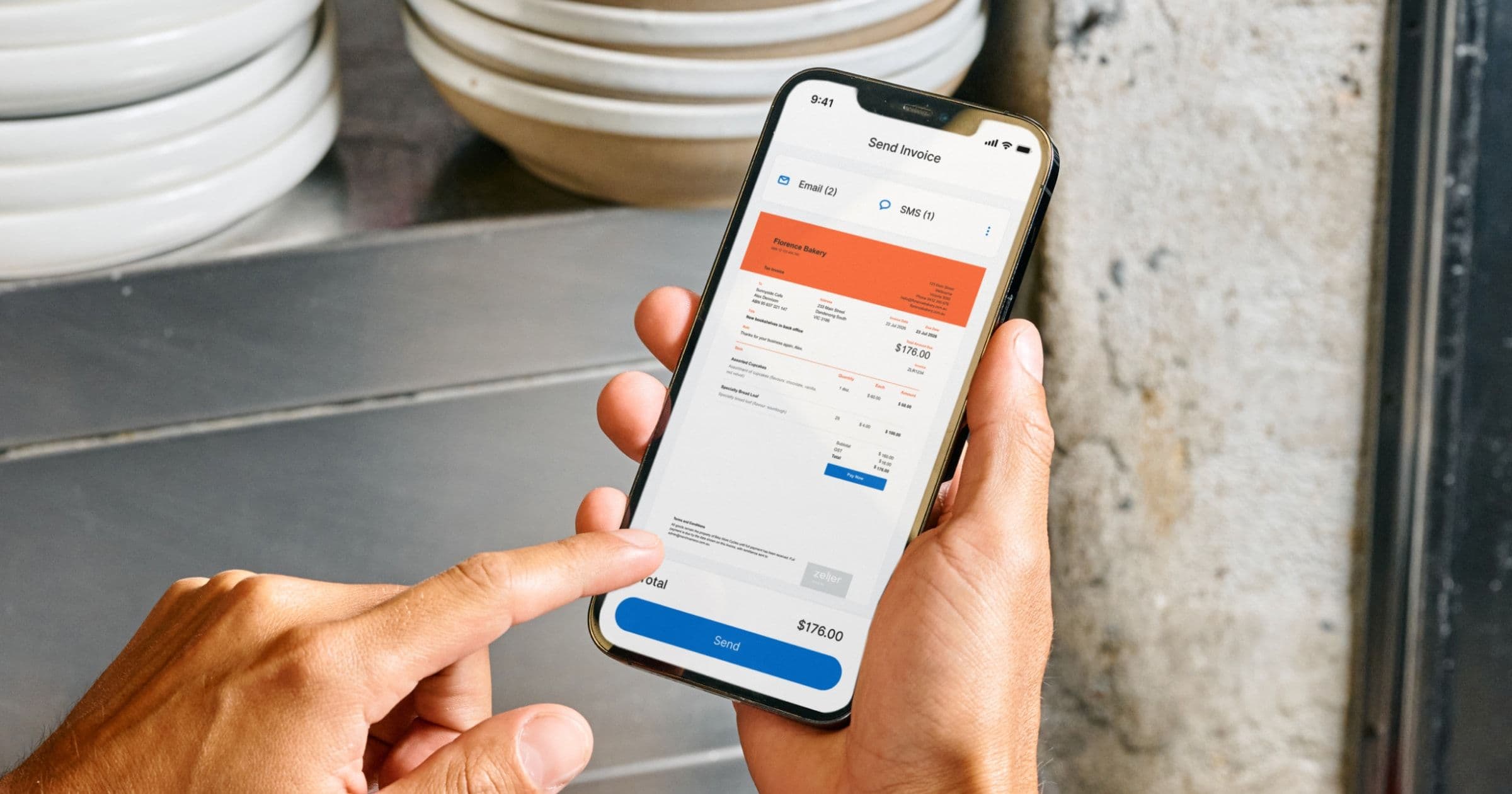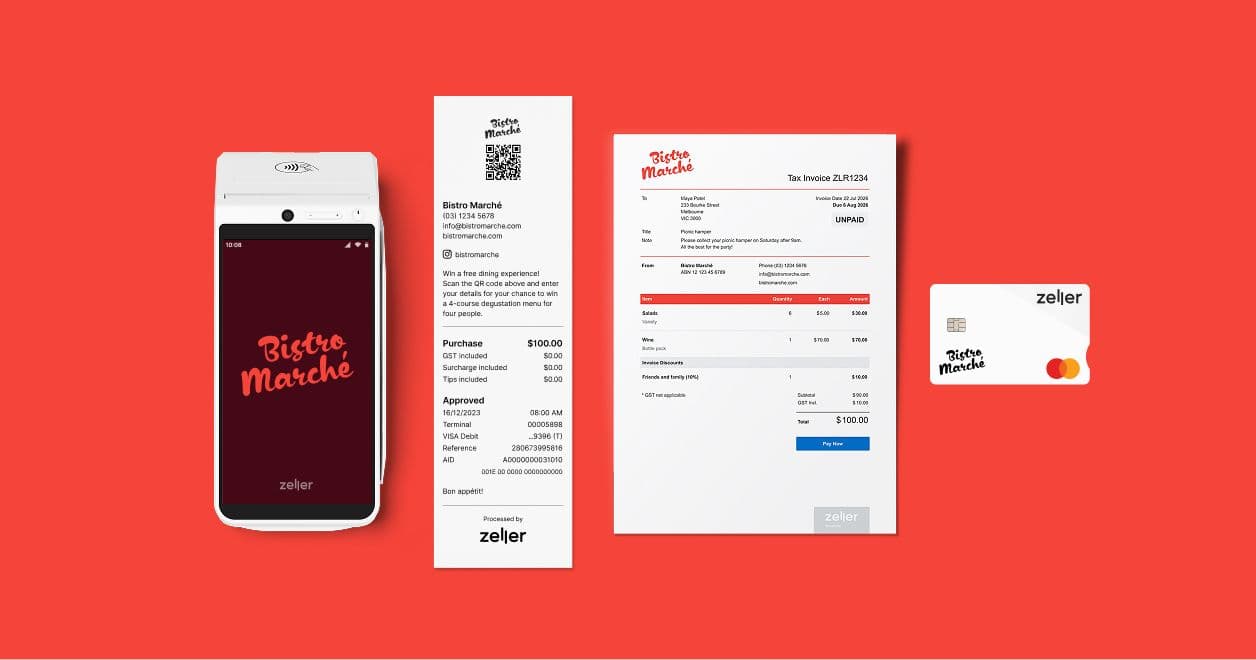
- Business Growth & Optimisation
Digital Marketing: Six Tips from a Small Business Mentor
Optimise tools you already have rather than adding more platforms unnecessarily.
Secure social accounts with strong passwords and two‑factor authentication to protect access.
Set up and maintain a Google Business Profile to boost search visibility.
Build a website that tells your story and includes clear calls to action.
Track analytics, set simple goals, and adjust strategy based on performance insights.
When you’re a small business owner running operations, managing accounts, hiring staff, and juggling customer service, it’s understandable that marketing can sometimes fall by the wayside. But neglecting it can cost you customers. We spoke with digital marketing expert and small business mentor, Amy Treacy, to uncover the simple yet essential steps to enhance your online presence and get more customers through the door.

Amy Treacy is a digital marketing specialist and small business mentor based in Cohuna, Victoria. With a background in IT, small business creation, insurance, and teaching, Amy founded her consultancy, Bush Biz Boost, in 2021 and has since helped over 150 Victorian businesses enhance their digital marketing, social media, and online presence. Using a personalised, community-driven approach, Amy empowers businesses – both new and established – by focusing on the fundamentals of digital presence and marketing, and helping them to address gaps and opportunities.
If there was one thing Amy Treacy could tell all small business owners when it comes to improving their digital marketing, it would be this: focus on the basics. “My whole business is about helping people get the basics right. There's no point racing off and doing Google Ads, if your website looks terrible or it doesn’t work properly, or if your phone number is listed incorrectly,” she explains. “The most common mistake I see is small business owners not optimising the platforms they have, and not using those that are cheap or free… They assume marketing is expensive, or involves really high level tech talk,” she continues. “Sometimes all it takes is a few simple steps to greatly improve your online presence.” So, what are these steps?
1. Use the tools you already have.
Rather than adding more social media platforms or marketing tools to your arsenal, Amy’s first piece of advice is to optimise what you’ve already got: “Look at your current tech stack. Subscriptions can get out of control and often people feel overwhelmed because they've got that many logins and this doesn't connect with that. Not to mention, if they’re paid subscriptions it can cost them a lot of money. Take a breath, understand what you want to do. What you can get rid of. What you can simplify. Then go from there,” she says. A lot of the time, the platforms you’re already using offer the same functionality that you’re looking for elsewhere… It’s important to use all the features and functions that the platforms build in for you,” she explains. “For example, a lot of people don’t realise that you can add your location on Facebook and Instagram. This simple action sends a signal to those platforms of where you are located in the world, so then they'll show your posts to people. Similarly, business owners should be encouraging customers to leave a review on their Google Business Profile – it can have a huge impact on how they rank on Google.”
2. Secure your social media accounts.
“A lot of businesses are very reliant on Facebook and Instagram, but what they don’t realise is that they can lose those profiles at the drop of a hat if they are hacked. It’s like putting all your eggs in one basket,” explains Amy. “Many small businesses haven’t yet invested in a website or an e-mail marketing system, but if they lose their Facebook account, they would have no way of contacting their customer base. They would have to start from zero, and a lot of businesses wouldn't be able to withstand that,” she says. It’s therefore essential to secure your accounts to mitigate the risk of being hacked. “It can be as simple as setting up a password management system and two factor authentication, but you also should make sure your Meta Business Account is set up properly as this is where I see a lot of problems arise.”
3. Get a Google Business profile.
“Nowadays, we use Google for everything. If you’re looking for a coffee shop, you type 'coffee shop' into Google Maps. It’s the first place people go,” says Amy, “So, if you’re not there, you’re nowhere,” she continues. Having a Google Business Profile is a great, free way for businesses to maintain an online presence, especially if they can’t afford a website. “Plus it actually doesn’t take much work each month,” says Amy, “Once it's set up, it's pretty much self-sufficient.”
What’s more, if you don’t have a website, a Google Business Profile can be a great way to help customers find what they’re looking for and reduce customer service enquiries: “There's a little feature called ‘questions and answers’,” says Amy, “Put your frequently asked questions in there. Not only will they be loaded with keywords, which will help improve your ranking on Google, but they will also help your customers find what they need without having to ring you.”
4. Invest in a website and show yourself on it.
“A website doesn’t have to cost you $20,000. There are so many cheaper options,” says Amy, “But even the smallest businesses can benefit from having a website, just for that trust factor. That online presence helps people to know that you’re not a scam, and for SEO [search engine optimisation] it’s also so important,” she explains.
Once you have a website set up, the next most important step is to explain what your business is about and why someone should buy from you. “One of the biggest mistakes I see is websites not having any call to action, no storytelling, nothing to convince me why I should buy from this business rather than finding a similar item at Kmart,” says Amy. “We're social animals and we want to connect with other people. That actually drives purchasing decisions. People want to know your backstory, the reasons why you're in business, all of those things can be easily shared on your website. They’re what make you memorable,” she explains. “Among my clients, the “About Us’ page is usually the second most visited page after the homepage,” says Amy. “Make sure you’ve got a photo of yourself on there and don’t forget to say where your business is based.”
5. Access your web and social media analytics and create a strategy.
“No one likes the word strategy,” says Amy, “but it doesn’t have to be 10 pages long or set in stone, you just need to have a goal. It could be as simple as saying ‘this year, I want to make X number of sales on Fathers Day’,” she explains. “From there, it’s just about working backwards with whatever you’re capable of and whatever you’ve already got set up.” Most business platforms – whether it’s your website, social media page, or Google Business Profile – will allow you to access the data and analytics of your page. These metrics, such as the number of clicks, the number of page views, or the number of likes, are key to understanding whether your strategy is working or not. “You don't need to take note of every single metric,” says Amy, “Just pick the most important ones, then decide what you want to improve first,” she explains. “After a period of time, you can go back and see if you’ve made a difference.”
You can also use these metrics to identify trends. “If your Facebook page has ticked along and all of a sudden we see a big spike in engagement, look into what you did that day and replicate it,” says Amy.
6. Keep learning and outsource when necessary.
“If something scares you, don’t just put your head in the sand,” says Amy. “Whether it’s Facebook, Instagram, or Google Business Profile, don’t assume you’re fine without it. Just keep learning,” she continues. While it might seem daunting at the beginning, these platforms do not require expert knowledge to use, and the benefits to your business will be considerable.
“Business owners run for the hills when I mention SEO,” says Amy, “but it’s not as complicated as many may think.” SEO, the process of improving your website’s visibility in search engine results, simply comes down to sending the right signals to Google, so that it can help users find your business. “Adding information to your website, and optimising your Google Business Profile and social media can have a significant impact on where you rank in search results,” explains Amy, “It's not something you necessarily need to pay an agency for - some things you can certainly DIY.”
Where you should outsource work is when it does indeed require expertise that you don’t have. “Don’t create your own logo if you don’t have any experience in design,” says Amy. “You can waste hours and hours and end up with a very amateur-looking logo which will be pixelated when you have to print it on a banner. Pay someone to do it. Engage an expert. The same applies to a bookkeeper or an insurance broker. Anyone who can take that load off,” she explains.
Need a helping hand?
If you’re a small business owner needing some extra support, be sure to check out the Digital Solutions Program which offers subsidised 1:1 mentoring, workshops, and courses on everything from social media, to SEO, web design, cybersecurity, and more. If you’re based regionally, join the free Bush Biz Owners of Australia Facebook group, where business owners can share, connect, and learn from one another or reach out to Amy via her website, Bush Biz Boost.

Let us help you simplify your business finances.
Take payments, store and save money, spend, and manage your expenses, all in the one place. Zeller makes financial management simple.



